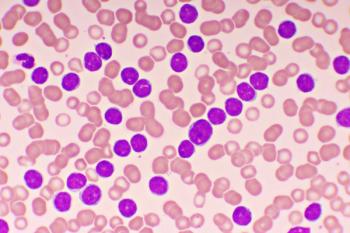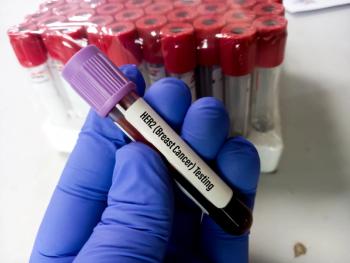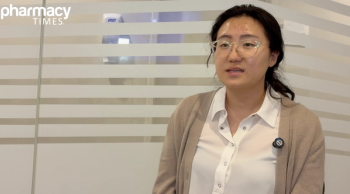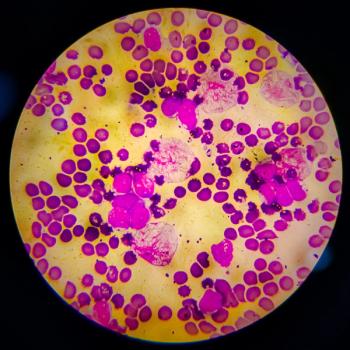
Research reveals that statins and metformin enhance survival rates in early-stage triple-negative breast cancer, offering hope for affordable treatment options.

Research reveals that statins and metformin enhance survival rates in early-stage triple-negative breast cancer, offering hope for affordable treatment options.

TACTI-004 follows 2 clinical trials, TACTI-002 and INSIGHT-003, which also assessed efti with pembrolizumab in first-line treatment of non–small cell lung cancer (NSCLC).

The move emphasizes the need for vigilant monitoring.

Invasive lobular carcinoma poses unique detection and treatment challenges, highlighting the urgent need for targeted research and improved survival strategies.

Repetitive DNA mimics pathogens, influencing cancer immunity and immunotherapy.

Niraparib combined with standard therapy significantly improves progression-free survival in men with HRR-deficient metastatic castration-sensitive prostate cancer.

Cemiplimab's approval is supported by findings from the C-POST clinical trial.

Medicaid expansion enhances 5-year cancer survival rates in rural and high-poverty areas, highlighting the importance of financial support for better health outcomes.

Aumolertinib and osimertinib show similar efficacy and safety when treating patients with EGFR-mutant non–small cell lung cancer (NSCLC), providing valuable insights for treatment optimization.

Frail patients with multiple myeloma (MM) can safely reduce dexamethasone use, enhancing treatment outcomes without increasing infection risks.

Matthew D. Clark, PharmD, highlights a pharmacist-led program that improved opioid safety in cancer care despite regulatory exemptions.

MD Anderson's opioid stewardship program enhances patient safety and care by monitoring opioid use, addressing discrepancies, and fostering multidisciplinary collaboration in cancer treatment.

Recent findings reveal that stereotactic radiation therapy (SABR) offers long-term survival outcomes comparable to surgery in patients with early non–small cell lung cancer (NSCLC).

Gene therapy offers transformative potential in treating diseases like sickle cell and leukemia, highlighting pharmacists' crucial roles.

New research links oral bacteria and fungi to pancreatic cancer risk, suggesting oral microbiota as potential noninvasive biomarkers for early detection.

Gene therapy revolutionizes treatment in oncology, highlighting pharmacists' vital roles in patient care and long-term monitoring.

In this video, experts who attended the 2025 International Myeloma Society (IMS) Annual Meeting highlighted topics of interest as well as pivotal data.

A real-world study at MSK reveals promising efficacy and safety of second-generation BTK inhibitors in mantle cell lymphoma treatment, influencing future guidelines.

A federal pricing pact with Pfizer and an executive order on pediatric cancer AI may reshape affordability and evidence pathways for pharmacists and patients.

Umoja Biopharma's UB-VV111 gains FDA fast track designation, revolutionizing CAR T-cell therapy for relapsed lymphoma and leukemia patients.

Cevostamab shows promise as a post-CAR T therapy for relapsed/refractory multiple myeloma, enhancing MRD-negative responses and improving patient outcomes.

Recent trials reveal fam-trastuzumab deruxtecan-nxki's potential to transform treatment for patients with high-risk HER2-positive breast cancer, enhancing survival rates significantly.

Alice Wang, PharmD, BCOP, discusses the rapid infusion of isatuximab for multiple myeloma, highlighting its benefits, safety, and improved patient convenience in treatment.

Pharmacists lead the charge in integrating pharmacogenetics into patient care, overcoming education barriers and enhancing treatment outcomes through expert guidance.

Adam Kahleifeh, PharmD, BCOP, discusses the impact of IDH mutations in low-grade gliomas.

Mary Nauffal, PharmD, MS, BCOP, discusses innovative use of isatuximab for red cell aplasia post stem cell transplant, highlighting its potential in clinical trials.

Etentamig shows promise in managing infections for relapsed/refractory multiple myeloma.

Patients with newly diagnosed transplant-eligible multiple myeloma (NDTE-MM) had high rates of complete response and minimal residual disease–negativity.

Anitocabtagene autoleucel shows impressive efficacy and safety in treating relapsed/refractory multiple myeloma, achieving a 97% overall response rate.